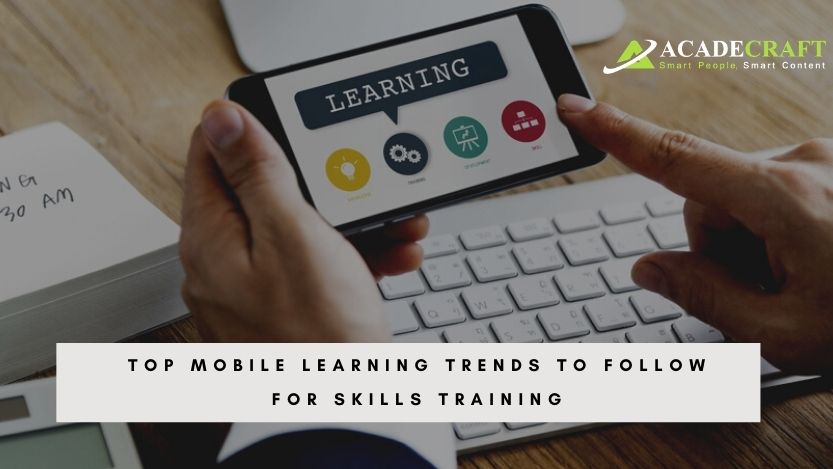
Skill training for employees requires independent thinking and proper knowledge. With a surge in demand for continuous learning, mobile learning solutions (m-learning) is becoming an effective means of training for most corporates.? A survey founds, Mobile learning is amongst ranks third priority after seamless business alignment and improved data mining for business. It is the dominant mode for online training that works for different industrial verticals. Beyond that, it connects the learner mind with content, and they can access it in one to one customized learning pattern. Read this post to know popular mobile learning trends to impart skill training.
Prefer mobile app development
Almost 57% of the workforce prefers mobile apps for personalized learning as a developer creates mobile apps that help learners access micro content and facilitate interactive learning. Develop quizzes that are easy to access on smartphones, followed by questions and pop up notifications. It is a great means to reinforce learning on employees and engage them in content.
These are effective tools offering personalized learning experience to learners. It enables to leverage them for specialized training programs like Sales, Leadership Development and other formal training. For those who are working in remote locations, they can connect with these programs having an internet connection. It regularly informs businesses on:
User generated content
In an organization, onboarding training is essential, followed by skill training. It is an important part of the training framework, but management struggles to ensure face-to-face training to guide employees every time they need help. Instead of Google or asking co-worker, user generated content is an effective means to gain knowledge. Here learners can create their content from their experience and share it with peers. For instance, trainers or co-worker short videos can effectively explain management concepts compared to searching it on Google.
Transform m-learning with AI Chatbots
Chatbots can be transformed into a virtual coach by adding Artificial Intelligence. So far we know, Chatbots are only used for answering specific questions, but it can also facilitate a personalized mobile learning journey for the learner.
A study founds, 43% of Gen Z prefer independent and self directed learning approach. There is a surge in the demand for personalized learning experiences. Of course, high completion rates are ensured when the course is delivered on the mobile, enabling learners anytime and anywhere learning.
Augmented Reality
Augmented Reality (AR) combines digital elements to the real life environment. You might have heard these terms in games and virtual tour of the campus. It provides an excellent mobile learning experience by making training programs interactive and engaging. For instance, an employee is repairing the malfunction part of a machine can place a mobile on it and get the stepwise repair instructions.
In the current scenario, AR is used in healthcare training to assess surgical skills of trainee surgeons. Its simulators bridges real-life objects with computer graphics providing them with an X-ray vision to enhance surgical accuracy. This technology can be used in warehouse management for order picking tasks with AR-based smart glasses.
Conclusion
Mobile technology is expanding its root in every service, and skill training is not untouched with it. Mobile learning solutions can be proved as a milestone to impart training content to employees. It can also boost workforce productivity and make them efficient in the organization.
Share